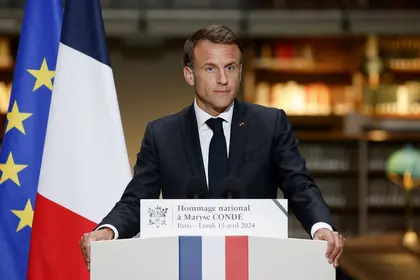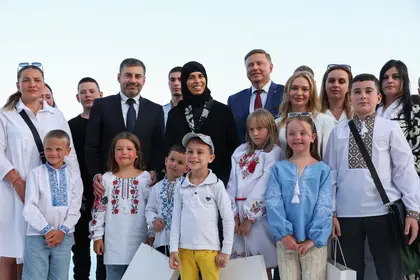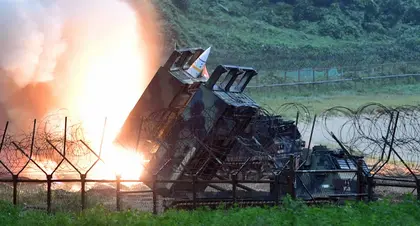hat have left deputies in no doubt that the administration is willing and able to ignore the rules of Rada procedure and act as it sees fit to accomplish its aims.
The vote to dismiss Stelmakh was conducted under circumstances that are not to be found anywhere in the Rada’s regulation book. Late on Dec. 18, it was still impossible to obtain a recapitulation of the final vote count or to learn who voted and for whom. As some Rada members have noted, the Stelmakh vote bears many of the operational marks of the vote on the Land Code last fall, a motion conducted under the direct supervision of then Deputy Speaker Viktor Medvedchuk, who is now Presidential Administration head.
Making use of the extraordinary voting procedures, the majority took care of three issues that had become paramount on the presidential wish list: the defenestration of Stelmakh; the seating of Labor Ukraine leader Serhy Tyhypko in Stelmakh’s still-warm chair; and the decapitation of all committee chairs that were not occupied by majority members.
Some of the committee chairs removed have said that they will not give up their posts until the vote count has been appropriately certified under proper Rada rules and procedures. This rear guard action is thought to be of little consequence since the majority seems ready to take whatever action needed, legal or otherwise, to ensure that all the Rada committee chairs are occupied by majority members.
There were other harbingers of a chaotic spring to come in the proposals of Raisa Bohatyryova, who heads the Donetsk-based Regions of Ukraine faction. She suggested that the time has come for the appointment of a Rada police force, which would be assigned to keep order and avoid the traditional scrums at the speaker’s podium, a tactic engaged in by all factions. There was also a suggestion from the majority that Rada members who are chronically absent from Rada deliberations should have their salaries docked. While for many who sit in the Rada, their salary is the least of their concerns, some Communist and Socialist deputies depend upon their salary to maintain life.
All of the above has led the opposition parties to form an inter-factional association “For Ukraine, democracy and parliamentarism.” The association says that it does not agree with the illegal decisions carried out by the Rada leadership under the orders of the Presidential Administration, and reserves the right to initiate court actions and apply for assistance from international organizations such as the World Bank, IMF and the Parliamentary Assembly of the Council of Europe.
Not all the disorder is in the Rada, though. Usually well-informed Rada insiders report that First Deputy Prime Minister Mykola Azarov was so upset about the appointment of Yury Kravchenko as head of his old agency, the State Tax Administration, that he gave serious thought to resignation. The reports indicate further that upon being made aware of Azarov’s displeasure, Kravchenko sent a back-channel message to Azarov that he would be busy cleaning up the mess left by the maladministration of his predecessor.
Finally, Rada deputy Mykola Hapochka (People’s Choice) developed a case of hoof-in-mouth disease at a Dec. 18 news conference at which he alluded publicly to the widely spread rumors that many of the votes for Volodymyr Lytvyn as speaker were based on payments to deputies. Hapochka’s problem was not with the obviously unethical and technically illegal payments for votes. He was mightily upset that quite a few of those deputies who had allegedly been paid for their votes then voted with blank pieces of paper rather than the pro-Lytvyn ballots they had been paid to cast.
You can also highlight the text and press Ctrl + Enter






Comments (0)